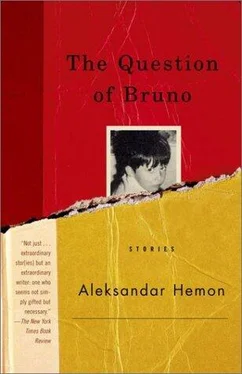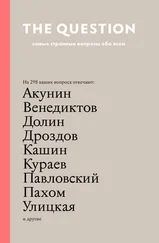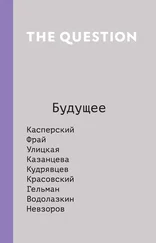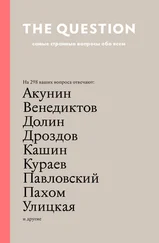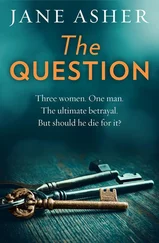The whole school was going to the cinema and, while we were impatiently waiting to cross the street, a lean girl with long, pony-tailed and dark hair, much older than any of us, ran across the street and, after a deafening squeal, was hit by a polished red Volkswagen. She went up like a bouncing ball, levitated for a blink of our flabbergasted eyes, and then she went down, with a whump. There was a moment of silence and then a boy in a navy-blue jacket started screaming. We were rushed away and, a little later, walking two by two, holding each other’s trembling hands, sang a song our teacher ordered us to sing: “With Comrade Tito, the people’s fearless son, not even hell will stop us …” In the cinema, we saw Snow White and the Seven Dwarves , and I could hear the boy sobbing the whole time.
On our way back, everything was normal at the street crossing — the girl and the car were gone. Except, close to the pavement, among balls of dirt and black motor-oil puddles, there was a sneaker, bright blue, with the sole face up and a piece of pinkish chewing-gum stuck to the heel. When I was returning home from school, it was raining. The sneaker was still there, and a rainbowy rivulet, descending from one of the oil puddles, went cautiously around it.
So we ran, Vampire and I, to our respective homes and brought back the needed nourishment: boiled eggs, chicken heads, a bottle of milk and, also, one of the beaten enameled pots that Vampire’s mother (he said) used to use to make potato soup. We watched the dog lapping up milk, while he raised his languid gaze every once in a while and looked at us, as though trying to recognize us. But he never would and he would just delve back into the milky pot. Vampire wanted to name him Tito, but I thought we could get arrested for that, so we named him Sorge, after a spy I had read about and wanted to be like.
Once in a while, I’d sneak into the cinema, when the bored usher wasn’t watching. Or I’d ask an adult to claim me as his (or her) child and take me in without paying the ticket. I sat in the front row, next to a complete stranger, feeling safe in the darkness, my head tilted back. Before the show, there’d be a smiling woman on the screen, always the same one, with sparkling eyes and a beehive hairdo, looking and pointing at us, asking us not to smoke, so we never did. The screen was vast and concave, as if preparing to envelop us. The close-ups were gigantic: once I realized in horror that I could fit into Clint Eastwood’s mouth, like a cigar. I could see the texture of the image overlapping with the texture of the screen. Right above my head there was a long, floating whirlpool of dust inside the fat, barely conical beam of light. The newly sprayed hay-fragrant air freshener struggled to overwhelm the sweat, cheap aftershave, and perfume brought from the outside. The chilling darkness of the cinema would glide over my skin, making me intensely aware of the boundary between the world and me. Sometimes I’d be so cold I shivered, but it was impossible to leave. I’d sit in my seat, freezing, about to pee in my pants, my thighs glued to the seat-skin, until the very end of the credits, reading all those unpronounceable names piously and wondering who were those people. Why were their names important? What did they do? Where were they? Were they alive?
Vampire managed to convince me that the mistletoe berries growing on the lime tree were not only delicious, but also capable of making me immortal and endowing me with incomprehensible power. After I had eaten several berries and then began retching, Vampire, in a moment of malicious inspiration, ran to my door, rang the bell, and told my father what I had done, omitting his role in the incident. When I got home, my father told me, with grave sincerity, that the mistletoe berries were deadly poisonous and that I should expect to be dead within a day. What could I do? — I trusted him. I burst into moribund tears, for I’d been promised to be taken to see Battle of Neretva the coming Saturday. I asked my father to spend my last hours with me. He lay on the bed, and I pulled down the shades, turned off the TV, deleting the quiz show he had been watching. I lay by his side, my head on his vast chest, I could hear his sonorous heartbeat, like a clock. I inhaled the scent of his Pitralon aftershave and waited to die, staring patiently into the darkness. I could hear an excited radio voice, coming from someone else’s apartment, whinnying in delight, for someone, somewhere, had scored a long-awaited goal.
In the building across the street, on the first floor, there lived an old woman named Emilija. Her face was being dragged down her skull like a glacier, wrinkles echoing one another, and the skin on her thin, fragile arms hung down, like dough. I thought she must have been beautiful when she was young. She always had formerly white gloves on her hands and a colorless scarf wrapped around her head, like a turban, but that was only because she believed that her neighbors wanted to overwhelm and suffocate her with dust, which they somehow kept blowing through her walls. The blinds on her windows were perennially closed and, at night, I’d see a flimsy shadow, projected on the blinds by a single source of feeble light. I’d see a silhouette throwing up her long puppet arms and pointing and shaking a finger at something or somebody beyond the screen window. Sometimes, she’d abruptly open her window and shout in a piercing, exhausted voice: “You want me to go away, but I shall not! Not ever! Go to hell! You want me to suffocate! Let me tell you! I can’t die! I’ll never die just to spite you! Go to hell!” Once, in the middle of the night, she threw out a bottle of milk, shrieking: “Poison! Poison!” The bottle shattered on the pavement and the milk puddle, awkwardly shaped, like a sea on a map, scintillated back at the street lights.
We built Sorge a house out of a sturdy cardboard box. We put cushy towels on the cardboard floor and even an embroidered pillow, which Vampire stole from his home, while his father was away drinking. Sorge would follow us everywhere. He’d sit in front of the cinema exit doors, as we exalted over the adventures of Shaft or Agent X. He’d doze under one of the park benches, as we oscillated on the swings. When it was time to go home, we’d have to keep him busy, if we wanted to sneak out on him, with bones and eggs. He was stinky and filthy and was populated by a colony of fleas, so, one day, after a sudden rain had washed him, I stole some money from my mother’s wallet and bought a can of bug spray — with a picture of a cockroach writhing in unspeakable horror under the triangular shadow spreading from the picture of the bug-spray can. So we sprayed Sorge. Vampire held him around the neck, as though hugging him, and Sorge stood patiently, stamping his hind legs a little, like a horse being groomed. I sprayed him all over, particularly the patches. When Vampire let him go, Sorge dutifully licked his face and sauntered away and then lay down under the slide.
And then the nonsmoking lady would reappear, with the same unperturbable smile, and I would exit the cinema with a stream of people trickling into the blazing day. I was blinded every time. I’d close my eyes and stellar spots would glide across the inside of my eyelids. Everything was deafening: bleating car horns, the fractious rumble of the traffic, the clamor and shouts of children playing soccer, radios turned on everywhere. I’d open my eyes and the world would be back: square, concrete, gray, and cacophonic, far from the mesmerizing tranquillity of the screen and darkness. I’d wish to have not seen the movie, so I could see it again and go through the same unforgettable deluge of sensations, but I’d immediately know I couldn’t — for time always went only forward, as in films. I’d know I could never go back and prevent losing a precious moment, and a warm wave of painful sorrow would keep spreading through my body, until it would moisten and blur my gaze.
Читать дальше
